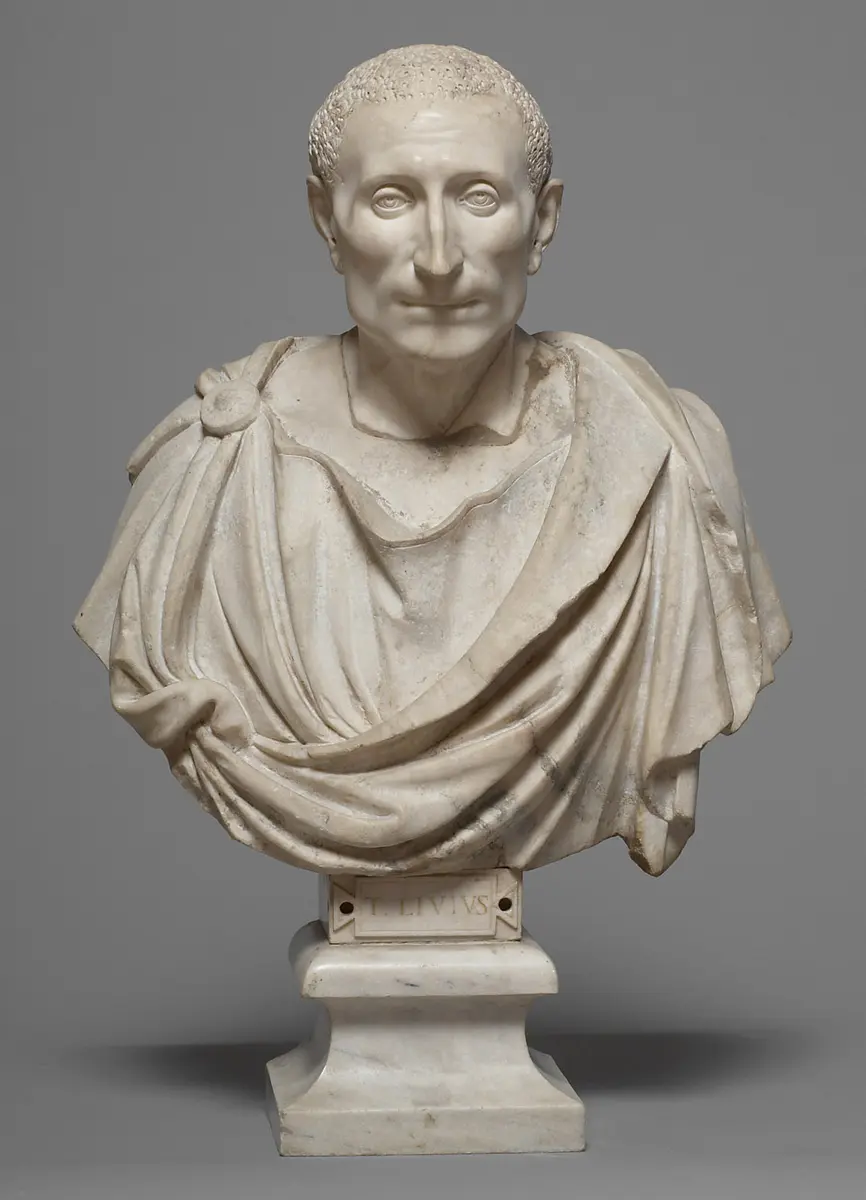Time:
c. 1550
Object Name:
Statue
Culture:
Padua
Material/technology:
Marble
Dimensions:
h. 67 cm; with base H. 85 cm, W. 56 cm, D. 28 cm; base plinth: 23 x 20,5 cm
Height of the head to the insertion into the shoulder: 22 cm
Copyright:
Kunsthistorisches Museum Wien, Kunstkammer
Invs.:
Kunstkammer, 7499
Provenance:
(48/PL/1922); from the Estensian Collection; 1872 Catajo Inv., No.1230; 1803 Catajo Inv., p.2
